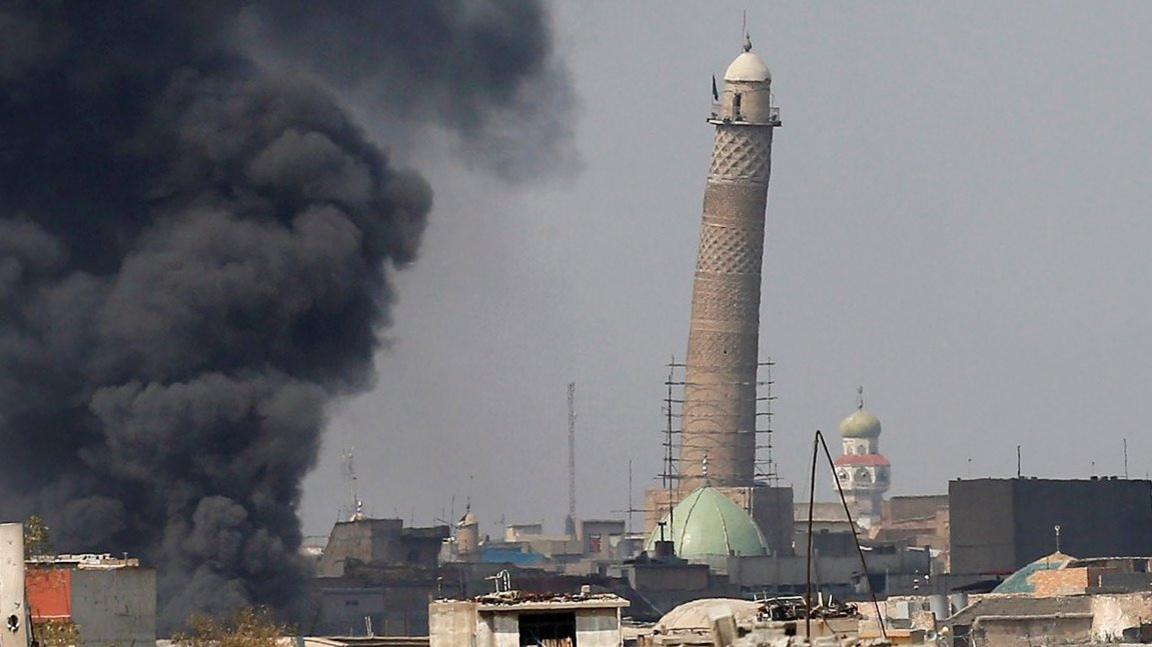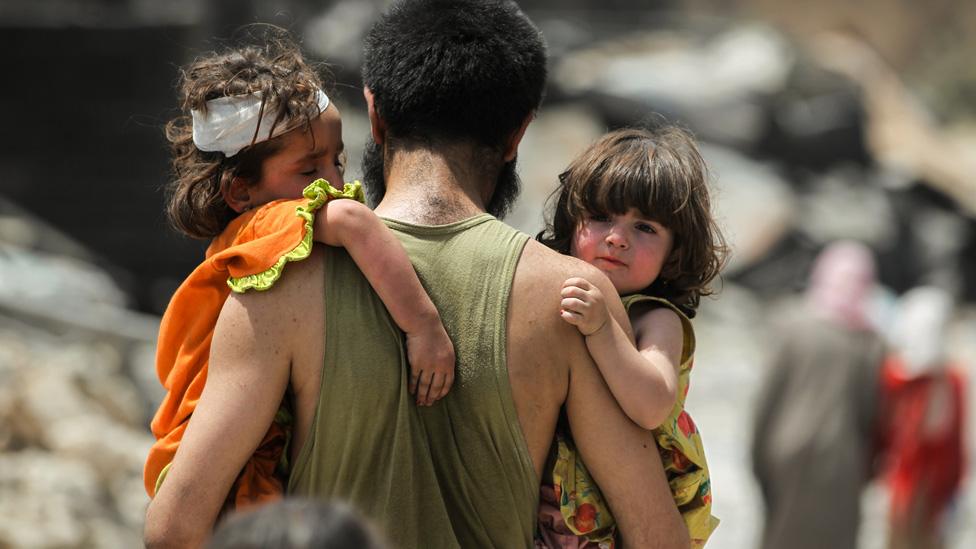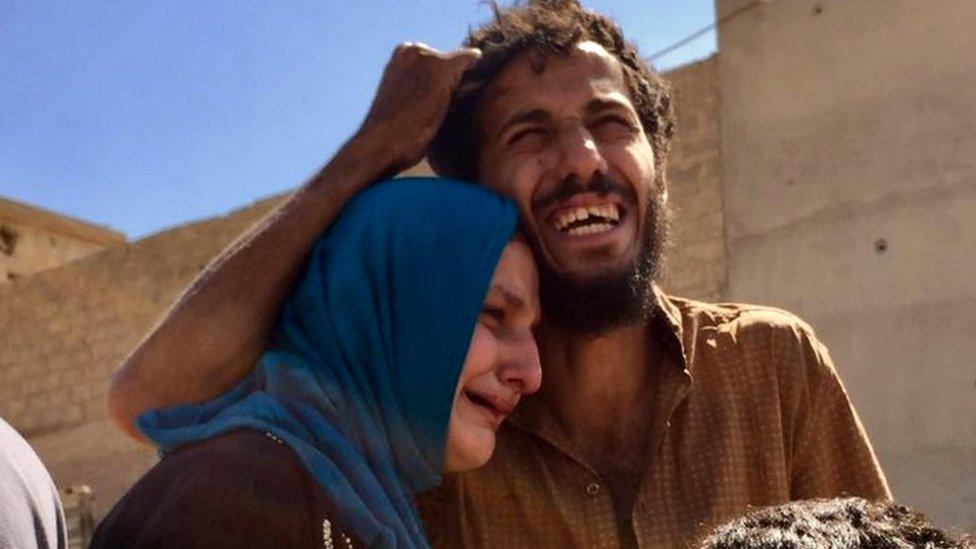Battle for Mosul: Iraq forces repel IS counter-attack
- Published
Orla Guerin on the front line in Mosul
Iraqi forces have repelled counter-attacks by so-called Islamic State (IS) as they push the group into a corner of Mosul's Old City.
IS deployed suicide bombers in different parts of the northern city but the affected areas were brought under control, Iraqi officials say.
The Iraqi offensive to remove IS from the city is in its final phase.
The military has announced it has captured Faruq district on the north-western side of the Old City.
Iraqi TV said the national flag had been raised in the district, which is opposite the al-Nuri mosque and famed crooked minaret destroyed by IS.
Great Mosque of al-Nuri destroyed
The operation to retake Mosul, seized by IS in 2014, began last October.
The government announced the liberation of the eastern half in January 2017, but the west of the city, with its narrow streets, has proved more difficult.
Nevertheless, IS is now confined to 2.5 sq km (a square mile) of territory.

Iraqi forces were just 600 metres away from accomplishing their mission, police commander Lt General Raed Jawdat said.
At least two IS counter-attacks were reported on Sunday night. The Baghdad-based Kurdish Shafaq news agency reported three attacks by the group in western Mosul - in Tanak, Rajm Hadid and Yarmouk districts.
Residents' houses were set on fire, the agency said.
"This is the toughest urban combat...since the Second World War," says Major General Rupert Jones
Officials quoted by AFP said IS fighters had hidden among civilians returning to their homes in -Tanak and Yarmuk. They said there had been casualties, including up to 20 jihadist fighters killed.

At the scene: BBC's Orla Guerin, with Iraqi forces on the frontline
What is clear is that these are the dying days of so-called Islamic State in Mosul. We have witnessed a clear change in the tempo of military operations since IS blew up the famed al-Nuri mosque last Wednesday.
The push against the militants has gained momentum - with increased ground operations and air strikes.
We counted about 20 air strikes through the day on Sunday, with helicopter gunships pounding IS targets and a great deal of mortar fire.
IS fighters are pinned down in a corner of the Old City, where the narrow streets favour the insurgents. The Iraqis believe the numbers are relatively small - about 300 to 450 - but these are battle hardened jihadists, most of them foreign. IS still has the capacity to resist.
Iraq's Emergency Response forces told us they had recently faced 80 suicide bombers in a four-day period. Counter-attacks by IS involving suicide bombers last night were dealt with swiftly, but the militants are fighting to the finish.

Tens of thousands of civilians are believed to remain trapped in the Old City.
As for the number of IS fighters still there, estimates from the Iraqi military and analysts suggest several hundred.
The increasing pressure on IS comes less than a week after the group blew up the al-Nuri mosque.
Prime Minister Haider al-Abadi said the destruction of the mosque, which was more than 800 years old, was "an official declaration of defeat" by IS.
The mosque was the scene of IS leader Abu Bakr al-Baghdadi's only public appearance, when he demanded allegiance to his "caliphate" in July 2014.
The offensive against IS in Mosul, the group's biggest urban stronghold in Iraq, was launched on 17 October 2016.
Thousands of Iraqi security forces, Kurdish Peshmerga fighters, Sunni Arab tribesmen and Shia militiamen, assisted by US-led coalition warplanes and military advisers, have been deployed.

Eyewitness: Sally Becker, aid worker
We were just a couple of streets away from one of the IS counter-attacks.
We had about 20 bodies (Iraqi soldiers) here yesterday and many more injured. In fact the trauma stabilisation point (TSP) is full of soldiers right now. An officer arrived with a bullet in his neck yesterday afternoon and it was shortly after that everything went a bit crazy.
There were cars set alight and roads were closed.
According to sources here, about 20 jihadists escaped from the Old City and popped up a couple of blocks from our TSP. In addition to this, the jihadist snipers have night vision goggles which meant the Iraqi army could only move very slowly.
It's definitely calmed down a bit now, although between about five and seven this morning it was pretty full on.
Sally Becker works for Road to Peace,, external an NGO helping children get access to medical treatment in war zones. She is currently working alongside Iraqi army medics to help treat the injured.

- Published21 June 2017

- Published10 July 2017

- Published16 June 2017
